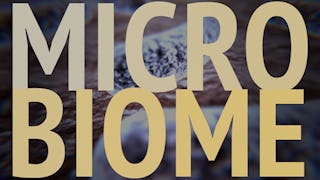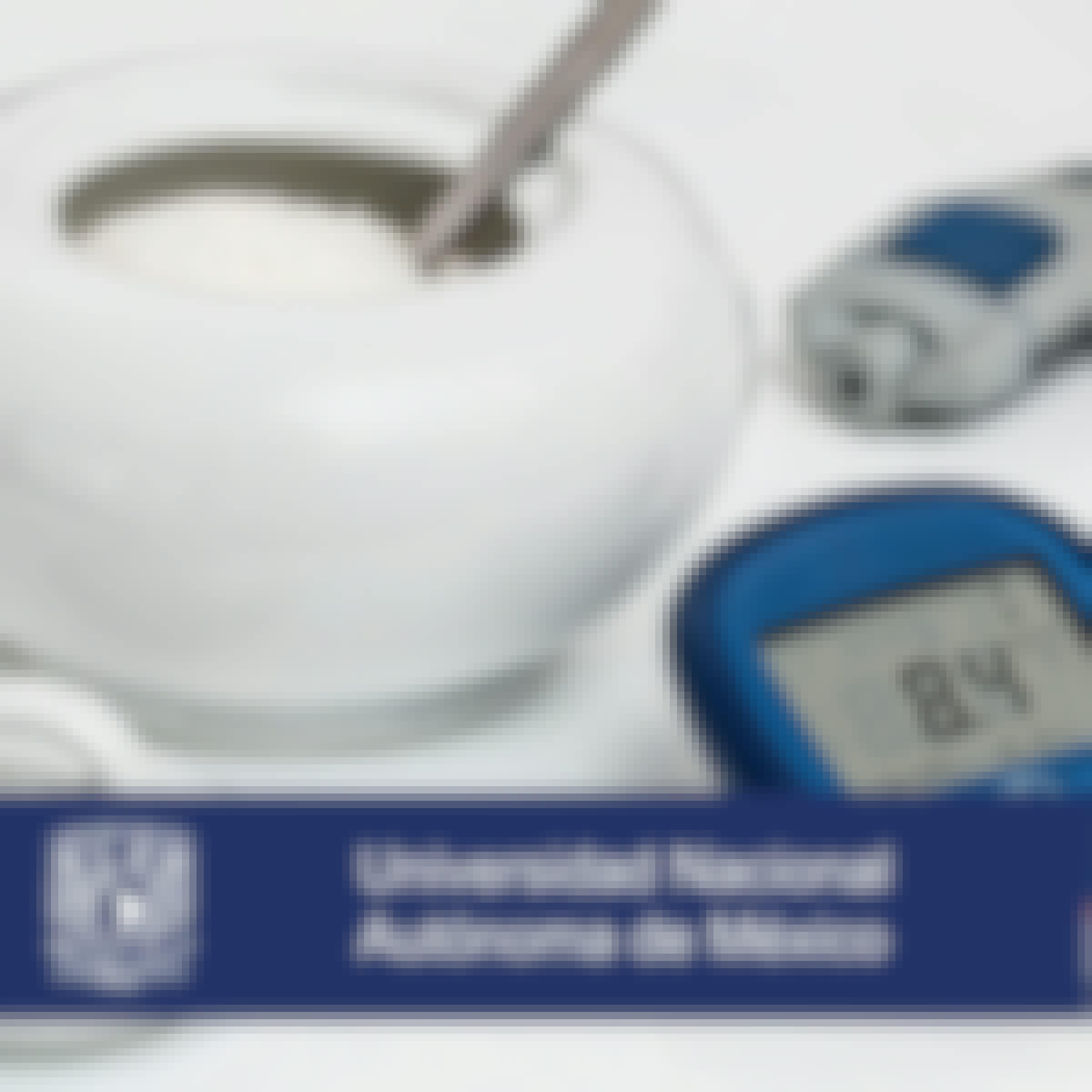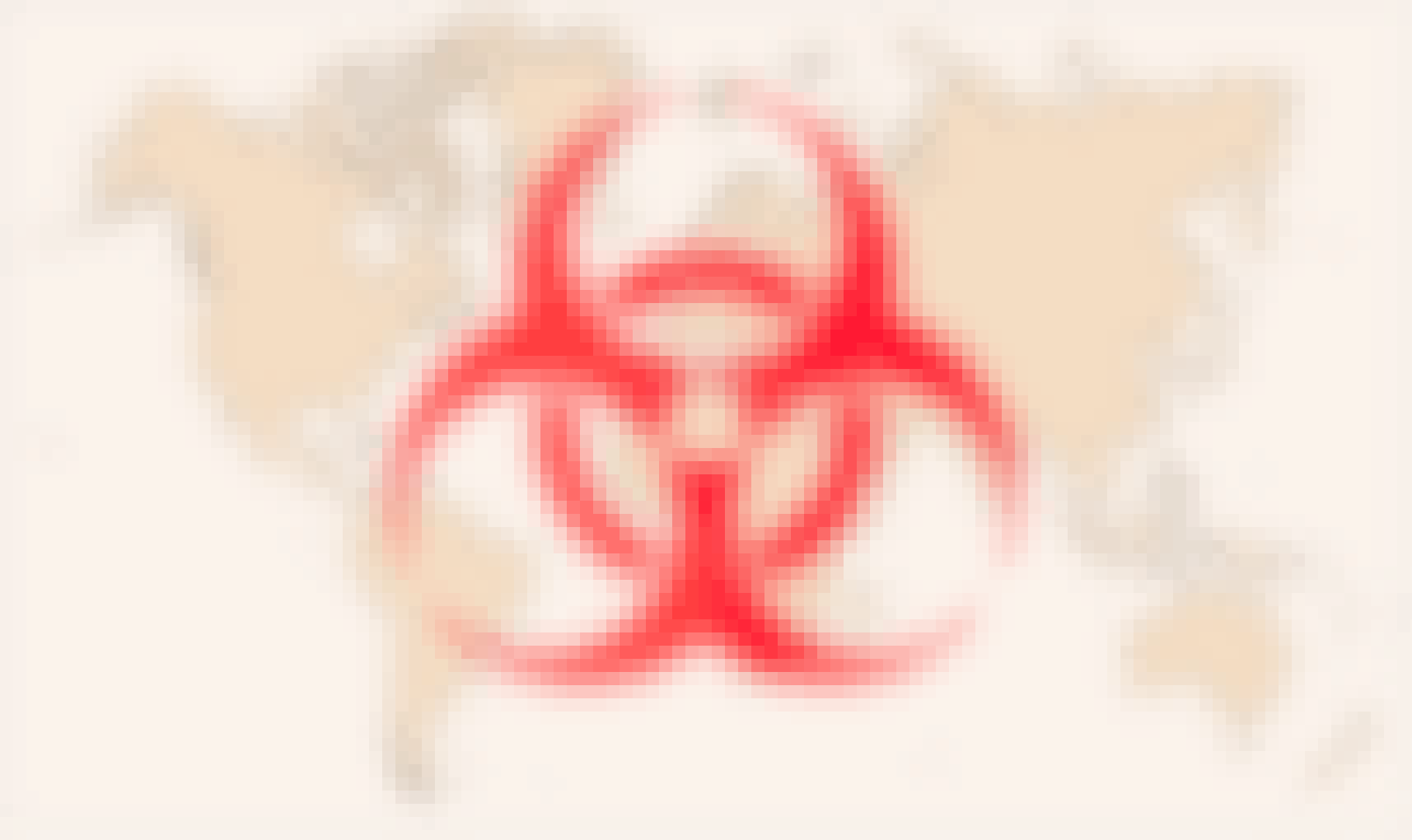Filter by
SubjectRequired
LanguageRequired
The language used throughout the course, in both instruction and assessments.
Learning ProductRequired
LevelRequired
DurationRequired
SkillsRequired
SubtitlesRequired
EducatorRequired
Explore the Chronic Disease Course Catalog

University of North Texas
Skills you'll gain: Life Sciences, Biology, Molecular Biology, Respiration, Microbiology, Environmental Science, General Science and Research, Experimentation

University of Geneva
Skills you'll gain: Health Policy, Program Evaluation, Geriatrics, Preventative Care, Epidemiology, Maternal Health, Health Disparities, Public Health, Healthcare Ethics, Chronic Diseases, Oncology, Mental Health

University of Colorado Boulder
Skills you'll gain: Microbiology, Bioinformatics, Life Sciences, Health Informatics, Big Data, Biostatistics, Data Analysis, Molecular Biology, Nutrition and Diet, Biology, Data Collection
 Status: Free Trial
Status: Free TrialRice University
Skills you'll gain: Medical Terminology, Orthopedics, Medical Records, Urology, Anatomy, Electronic Medical Record
 Status: Free Trial
Status: Free TrialImperial College London
Skills you'll gain: Public Health and Disease Prevention, Epidemiology, Cardiology, Public Health, Chronic Diseases, Health Policy, Preventative Care, Health Care, Medical Science and Research, Oncology, Neurology

New York University
Skills you'll gain: Respiratory Care, Mindfulness, Respiration, Physical Therapy, Stress Management, Pulmonology, Research, Cardiology, General Science and Research, Kinesiology, Orthopedics, Biology, Preventative Care, Health Assessment, Vital Signs, Anatomy, Chronic Diseases, Neurology, Mental Health

Johns Hopkins University
Skills you'll gain: Environmental Regulations, Chemistry, Laboratory Testing, Public Health, Environmental Monitoring, Environmental Science, Health Assessment, Public Health and Disease Prevention, Epidemiology, Environmental Policy, Biology, Risk Analysis

Universidad Nacional Autónoma de México
Skills you'll gain: Chronic Diseases, Nutrition and Diet, Clinical Nutrition, Pharmacology, Medication Therapy Management, Patient Treatment, Drug Interaction, Treatment Planning, Internal Medicine, Medical Management, Physical Therapy

University of Florida
Skills you'll gain: Obstetrics And Gynecology, Nutrition and Diet, Preventative Care, Care Management, Behavior Management, Anatomy, Vital Signs, Health Assessment, Infectious Diseases, First Aid, Biology, Communication

Johns Hopkins University
Skills you'll gain: Public Health and Disease Prevention, Research Methodologies, Mental and Behavioral Health Specialties, Public Health, Epidemiology, Mental Health, Health Disparities, Maternal Health, Mental Health Diseases and Disorders, Psychiatry, Preventative Care, Cultural Diversity
 Status: Free Trial
Status: Free TrialImperial College London
Skills you'll gain: Infectious Diseases, Oncology, Epidemiology, Public Health, Pathology, Pharmacotherapy, Biology, Microbiology, Chronic Diseases, Patient Treatment, Precision Medicine, Treatment Planning, Medical Science and Research, Molecular Biology, Laboratory Research

The Pennsylvania State University
Skills you'll gain: Infectious Diseases, Epidemiology, Public Health and Disease Prevention, Microbiology, Public Health, Social Sciences, Community Health, Emerging Technologies, Mathematical Modeling, Molecular Biology
Chronic Disease learners also search
In summary, here are 10 of our most popular chronic disease courses
- Contemporary Biology : University of North Texas
- Disease Screening in Public Health: University of Geneva
- Gut Check: Exploring Your Microbiome: University of Colorado Boulder
- Medical Terminology I: Rice University
- Global Disease Masterclass: Non-communicable Diseases: Imperial College London
- Engineering Health: Introduction to Yoga and Physiology: New York University
- Chemicals and Health: Johns Hopkins University
- Actualización en el manejo del paciente con diabetes mellitus tipo 2: Universidad Nacional Autónoma de México
- The Horse Course: Introduction to Basic Care and Management: University of Florida
- Major Depression in the Population: A Public Health Approach: Johns Hopkins University










